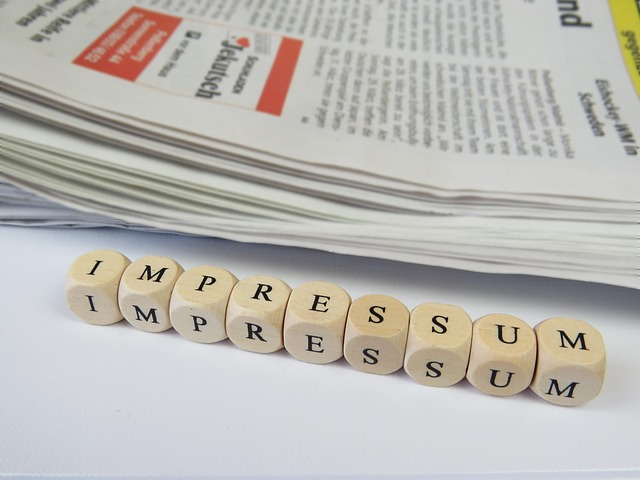Corporate crime investigations rely on meticulous evidence collection, including financial records, witness statements, and digital forensics to establish criminal intent. Strict legal protocols ensure fairness and admissibility of evidence in complex white-collar crimes. Integrating documentary proof, financial records, and witness testimonies strengthens cases, ultimately securing convictions or preventing indictment by clearly demonstrating malicious intent.
Corporate Crime Investigations delve into the complex world of white-collar offenses, where laws are broken behind closed doors. This article navigates the intricate process, from understanding the legal framework to employing digital forensics and witness interviews. Key among these is the Role of Evidence in Establishing Criminal Intent, which serves as a linchpin in proving corporate misconduct. By examining tangible clues and human testimony, investigators unravel sophisticated schemes, ensuring justice prevails.
- Understanding Corporate Crime Investigations
- Legal Framework for Evidence Collection
- Digital Forensics: Uncovering Electronic Clues
- Witness Interviews: Human Insight Matters
- Role of Evidence in Proving Criminal Intent
Understanding Corporate Crime Investigations
Corporate crime investigations are a specialized field, demanding meticulous attention to detail and a deep understanding of business practices. The primary goal is to uncover illegal activities within organizations, holding perpetrators accountable under the law. These investigations often involve complex financial transactions, intricate corporate structures, and high-level decision-making. Therefore, the role of evidence in establishing criminal intent is paramount.
For his clients, the process begins with gathering substantial proof that demonstrates deliberate misconduct or negligence. This includes financial records, emails, witness statements, and other relevant documents. By analyzing this evidence, investigators can reconstruct events, pinpoint responsible parties, and build a strong case for prosecution. An unprecedented track record of successful investigations testifies to the effectiveness of these strategies in avoiding indictment and ensuring justice for corporate crimes.
Legal Framework for Evidence Collection
The legal framework governing evidence collection in corporate crime investigations is meticulously designed to ensure fairness while uncovering truths essential for justice. This process begins with understanding the principles that guide investigators in gathering and presenting evidence, especially when dealing with complex white-collar and economic crimes. The focus on preserving the integrity of evidence is crucial for establishing criminal intent in court—a key element in securing convictions during jury trials.
Investigators must adhere to strict protocols to avoid indictment and ensure the admissibility of evidence. This involves employing legal tactics such as obtaining search warrants, conducting interviews under caution, and meticulously documenting every step of the investigation. By following these procedures, investigators can navigate the intricate landscape of corporate crime while safeguarding the rights of both suspects and victims, ultimately aiming to provide concrete evidence that leads to just outcomes.
Digital Forensics: Uncovering Electronic Clues
In the realm of corporate crime investigations, digital forensics plays a pivotal role in uncovering electronic clues that can establish criminal intent. With an unprecedented track record in white-collar defense cases, experts leverage advanced techniques to delve into the digital landscape, where illicit activities often leave traces that traditional methods might overlook. This meticulous process involves the extraction and analysis of data from various sources—from emails and financial records to internet history and network logs—to paint a comprehensive picture of malicious schemes.
By employing sophisticated tools and methodologies, investigators can navigate complex digital labyrinths, extracting evidence that may be crucial in prosecuting corporate criminals. The role of evidence in establishing criminal intent is paramount, ensuring just outcomes for both victims and accused. This specialized approach not only enhances the accuracy of investigations but also reinforces the integrity of legal proceedings, ultimately fostering a more robust justice system.
Witness Interviews: Human Insight Matters
In corporate crime investigations, witness interviews are a crucial component that often provides the human insight needed to piece together the complexities of financial fraud or other white-collar offenses. While digital evidence plays a significant role in establishing criminal intent, the testimony and perspectives of individuals who were present during suspicious activities can offer unique insights. Interviewing witnesses at all stages of the investigative and enforcement process is vital for uncovering nuances that may have been missed through digital analysis alone.
The value of these interviews lies not only in corroborating digital evidence but also in revealing motivations, discussions, and decision-making processes within organizations. This qualitative data can help prosecutors build stronger cases, potentially avoiding indictment or reaching more favorable outcomes for clients involved in white-collar defense strategies. Ultimately, the integration of witness interviews into investigations ensures a comprehensive understanding of criminal activities, thereby strengthening the overall case.
Role of Evidence in Proving Criminal Intent
In corporate crime investigations, the role of evidence is paramount in proving criminal intent. Strong and relevant evidence serves as the bedrock upon which prosecutors build their cases, aiming to demonstrate that individuals or organizations have acted with malice aforethought, recklessness, or willful blindness. Without concrete evidence, it becomes exceedingly challenging to secure convictions in high-stakes cases, where millions of dollars and reputational damage are at stake. The process involves meticulously collecting, analyzing, and presenting evidence across all stages of the investigative and enforcement process.
This includes documentary proof such as emails, financial records, and internal communications, which can provide a clear narrative of decisions made and their impact. Additionally, witness testimonies offer firsthand accounts that corroborate or contradict the accused’s version of events. By integrating these pieces of evidence seamlessly, investigators and prosecutors can construct a compelling case that either avoids indictment or strengthens the prosecution’s position should charges be filed.
Corporate crime investigations require a multifaceted approach, combining legal expertise with advanced digital forensics and human-centric witness interviews. As discussed, understanding the complex web of corporate activities is crucial, while leveraging the right tools and techniques ensures robust evidence collection. Ultimately, the role of evidence in establishing criminal intent cannot be overstated; it’s through meticulous analysis that justice prevails and organizational misconduct is brought to light.






